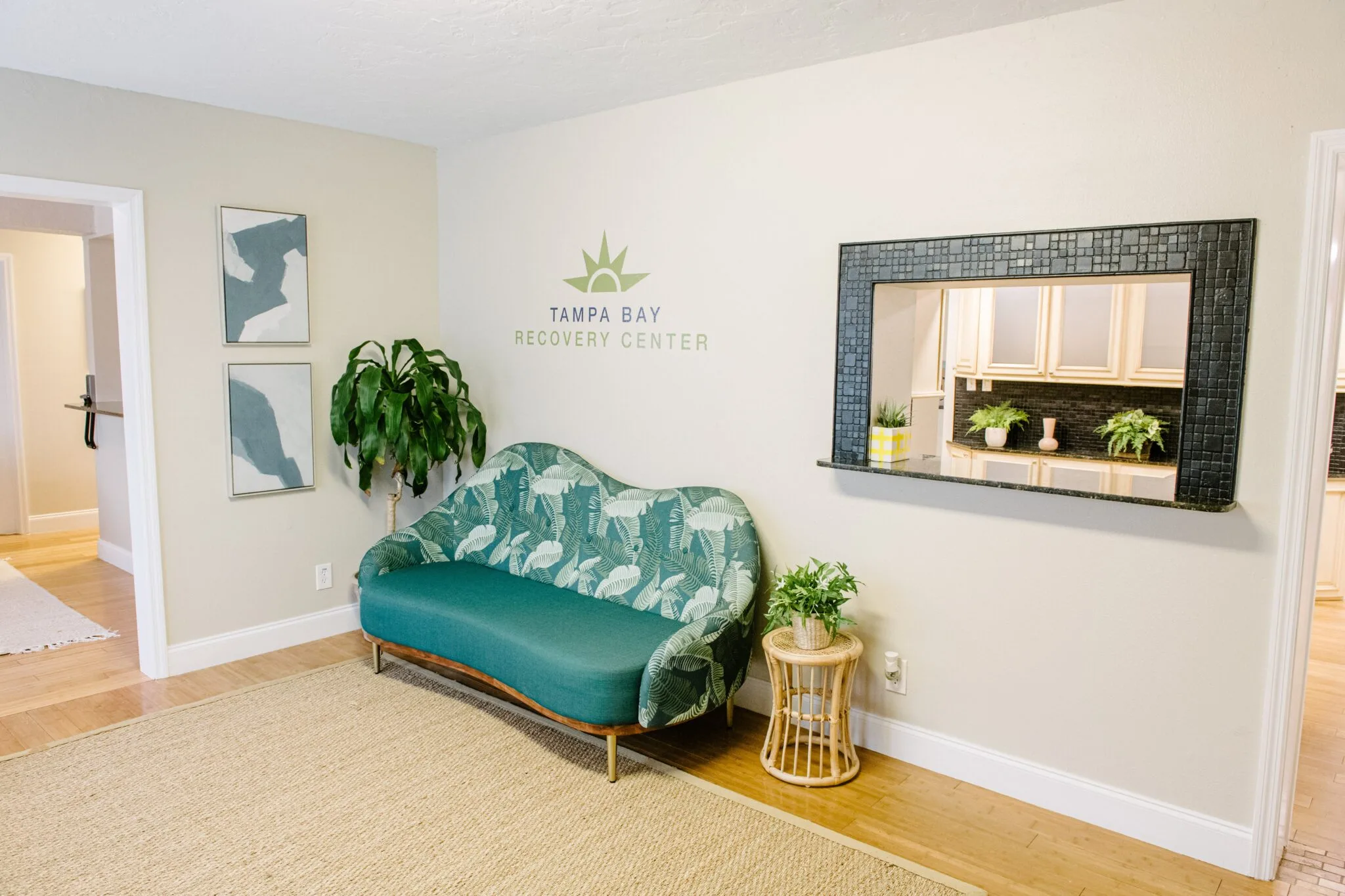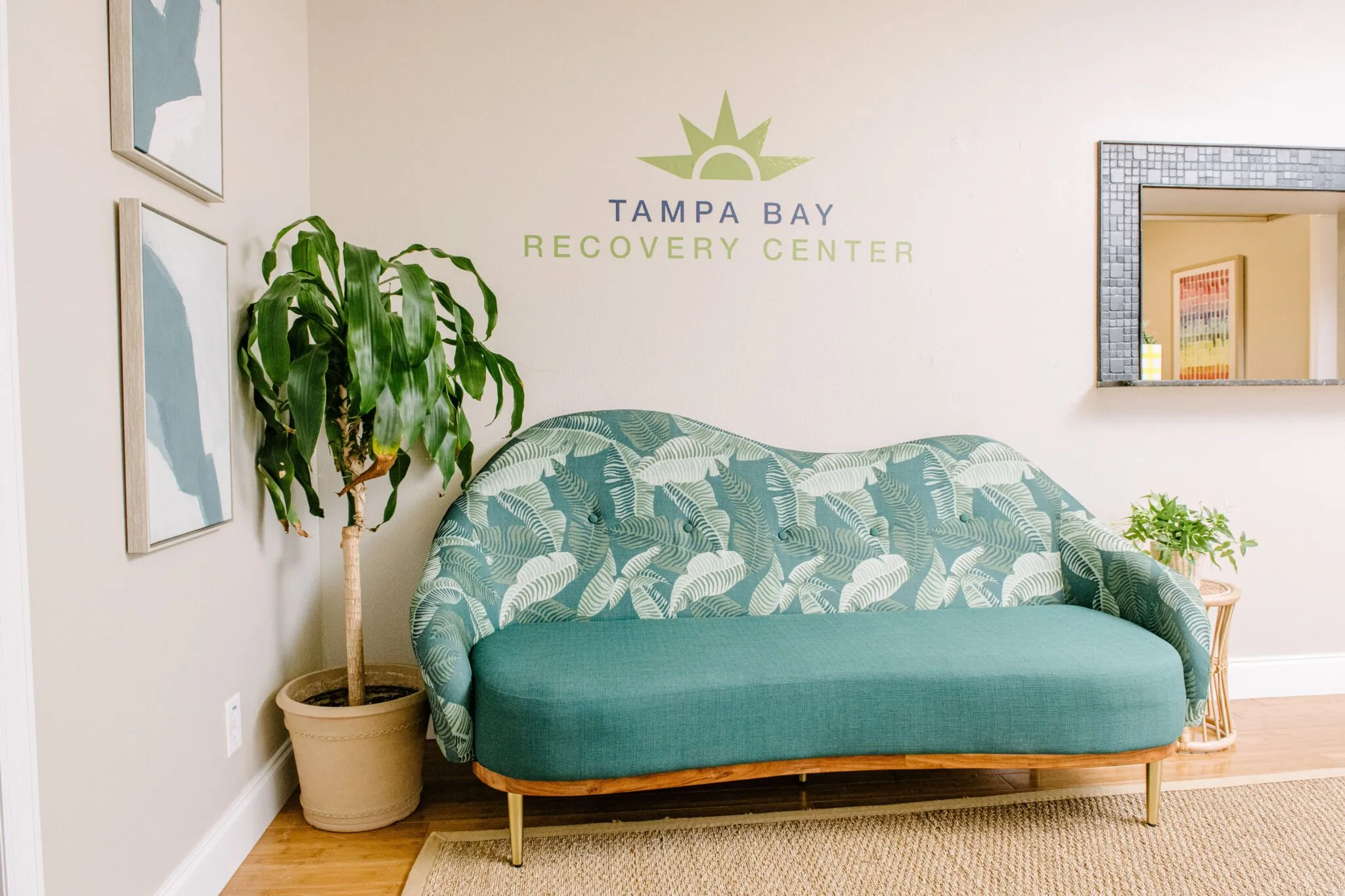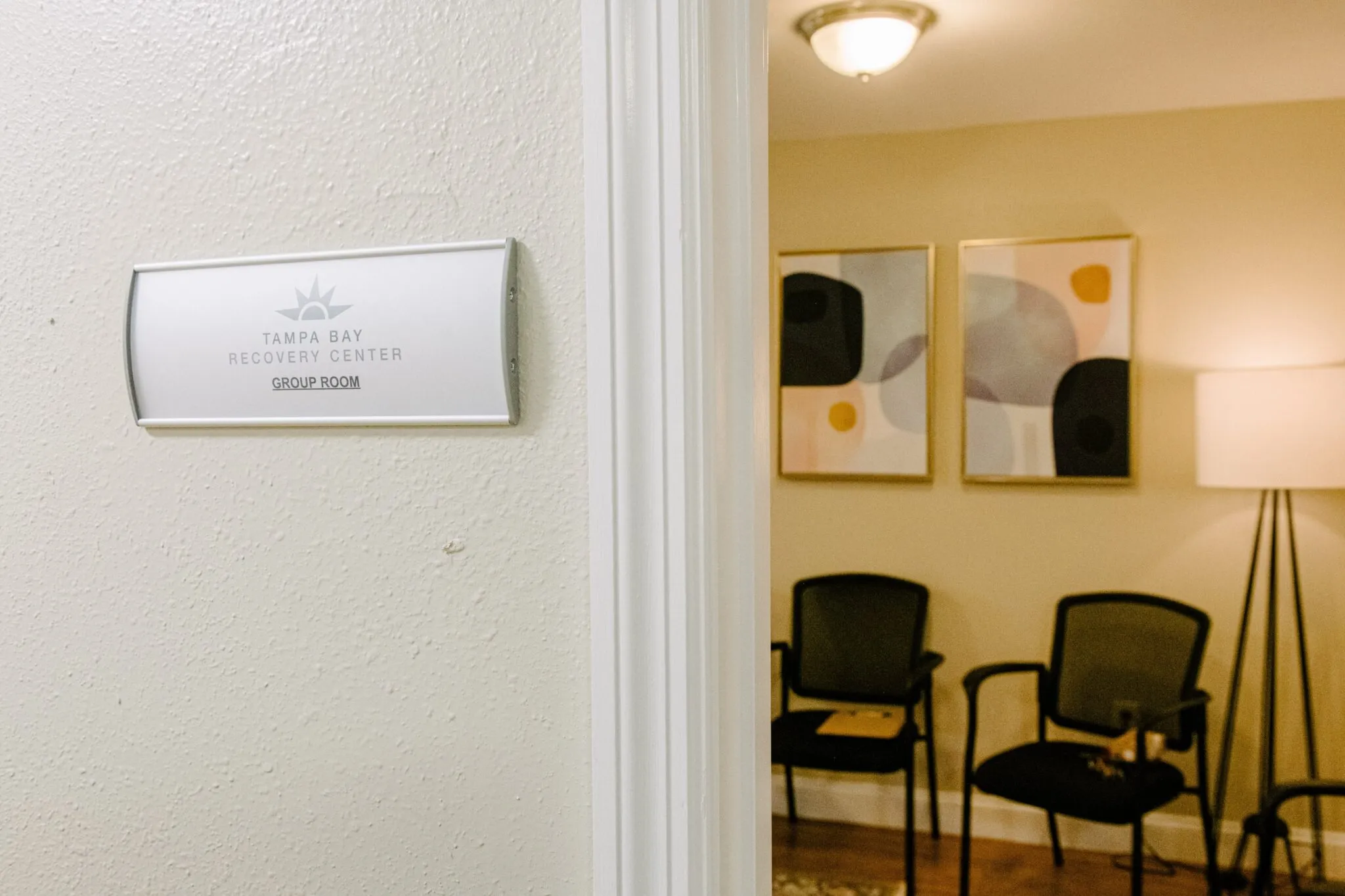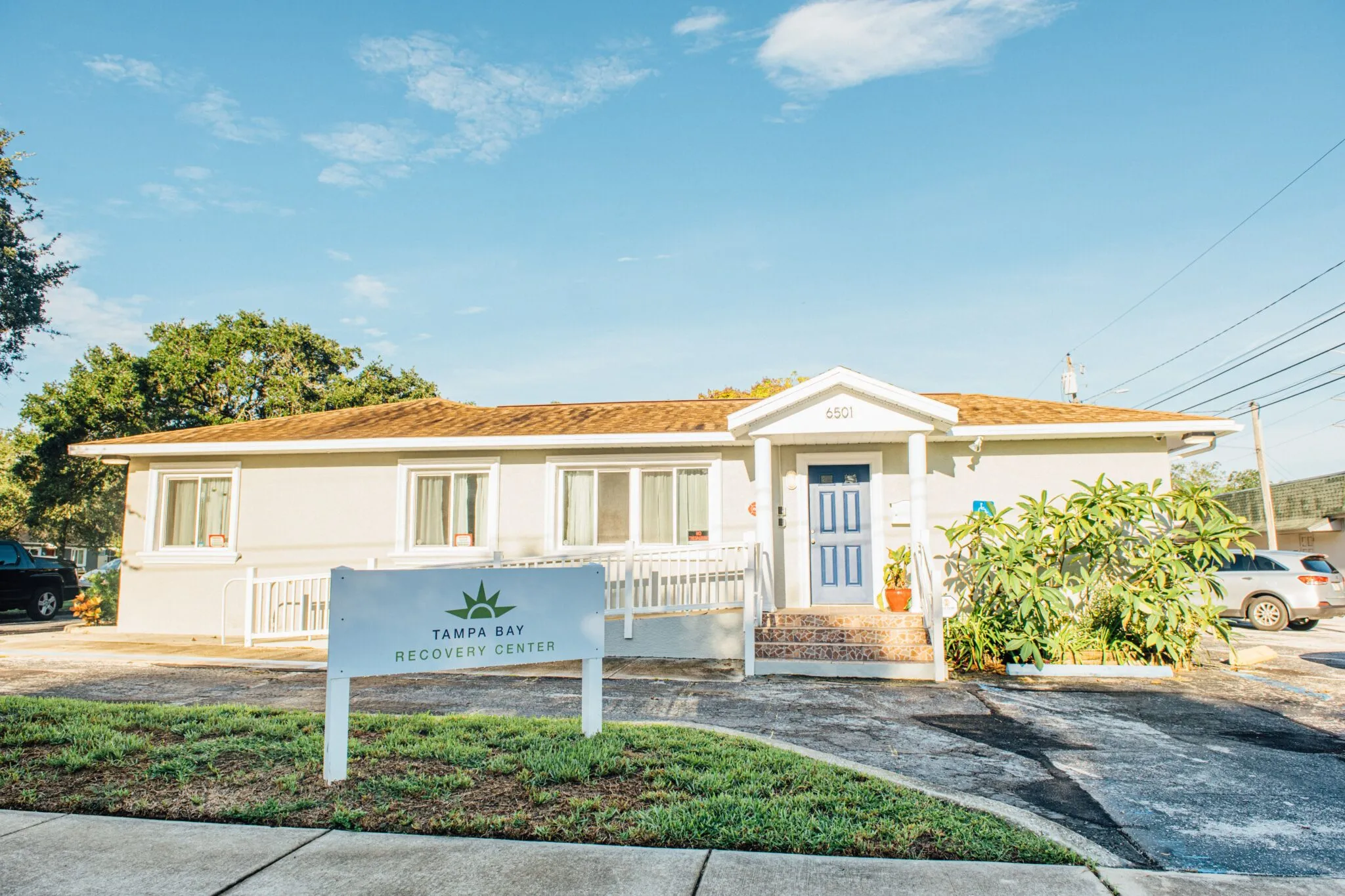Home Programs Detox

Drug Detox Programs
Our drug and drug detox programs in Tampa, Florida, can help you start your recovery from addiction.
Drug detox is more than just clearing substances from your system—it’s the beginning of reclaiming your life. Our experienced medical team and compassionate staff are here to guide you through every step of the process, ensuring your safety and comfort while preparing you for the next phase of your recovery journey.
If you or a love one are struggling with substance use disorder, call us now at 813-733-7604. Our rehab programs in St. Petersburg and Tampa can help those struggling put their health first.
What is Drug Detox Treatment?
Drug detox treatment is a medically supervised process that helps individuals safely eliminate drugs from their bodies while managing withdrawal symptoms. This critical first step in addiction recovery involves monitoring vital signs, providing medications when necessary, and offering psychological support as the body adjusts to functioning without substances.
During detox, healthcare professionals closely monitor patients to ensure their safety and comfort. The process typically involves three main components: evaluation (comprehensive assessment of physical and mental health), stabilization (medical and psychological support during withdrawal), and preparation for ongoing treatment (planning for continued recovery efforts).
Detox is not a cure for addiction, but rather the essential first step that prepares individuals for comprehensive addiction treatment. It creates a stable foundation that allows people to engage effectively in therapy, counseling, and other recovery activities.
Our Tampa Drug Detox Programs
Tampa Recovery offers specialized detox programs tailored to address withdrawal from various substances:
Opioid Detox: Whether you’re struggling with prescription painkillers like OxyContin, Dilaudid, Vicodin, or street drugs like heroin and fentanyl, our opioid detox program provides medication-assisted treatment to ease withdrawal symptoms and reduce cravings.
Alcohol Detox: Alcohol withdrawal can be particularly dangerous and potentially life-threatening. Our medically supervised alcohol detox ensures your safety while managing symptoms like tremors, anxiety, and in severe cases, delirium tremens.
Cocaine Detox: While cocaine withdrawal is typically less physically dangerous than other substances, the psychological symptoms can be intense. Our program addresses depression, fatigue, and powerful cravings through medical supervision and therapeutic support.
Methamphetamine Detox: Meth detox involves managing severe fatigue, depression, and intense cravings. Our team provides round-the-clock monitoring and psychological support during this challenging process.
Benzodiazepine Detox: Withdrawal from benzos like Xanax, Valium, and Ativan requires careful medical tapering to prevent potentially dangerous seizures. Our gradual reduction protocols ensure your safety throughout the process.
Prescription Drug Detox: From stimulants like Adderall to sleep aids like Ambien or Seroquel, our prescription drug detox programs address the unique challenges of pharmaceutical dependency with personalized medical protocols.
Take Back Control:
Contact Us Now
Addiction and mental health disorder effects the lives of millions of Americans each year. Contact Creekside Recovery Group today to get the help you deserve.
TOUR
Tour Our Outpatient Detox Facility
The Side Effects of Drug Detox
Drug detox side effects vary depending on the substance, duration of use, and individual factors. Understanding both acute and prolonged symptoms helps you prepare for the recovery process.
Acute Physical Symptoms: Nausea, vomiting, sweating, tremors, headaches, muscle aches, fatigue, sleep disturbances, changes in appetite, and fluctuations in body temperature. These typically occur within hours to days of stopping drug use.
Acute Psychological Symptoms: Anxiety, depression, irritability, mood swings, difficulty concentrating, memory problems, and intense cravings for the substance. These symptoms often peak within the first few days of detox.
Severe Acute Symptoms: Some substances can cause more serious withdrawal symptoms, including seizures (especially with alcohol and benzodiazepines), hallucinations, delirium, and dangerous changes in heart rate or blood pressure.
Post-Acute Withdrawal Syndrome (PAWS): Many individuals experience prolonged withdrawal symptoms that can last weeks, months, or even years after initial detox. PAWS affects up to 90% of people recovering from opioid addiction and 75% of those recovering from alcohol or other substances.
PAWS symptoms include persistent mood disturbances such as depression and anxiety, cognitive difficulties including problems with memory and concentration, sleep disturbances and insomnia, reduced energy and motivation, increased sensitivity to stress, and intermittent drug cravings that can appear unexpectedly.
Unlike acute withdrawal, PAWS symptoms tend to come and go in waves, often triggered by stress, lack of sleep, or environmental factors. Understanding PAWS is crucial because many people are surprised by these lingering symptoms and may mistakenly believe they’re not recovering properly.
Ready to Escape Addiction? Let’s get Started
Tampa Bay Recovery Center is a premier leader in the provision of addiction treatment services. If you or someone you love is in need of professional care to address a substance use disorder, reach out to us right now at (813) 733-8774 to speak with an admissions specialist who can get you started on the road to recovery.
Tampa Drug Detox Process
The drug detox process at Tampa Recovery follows a structured, evidence-based approach:
Initial Assessment: Comprehensive medical and psychological evaluation, including medical history, substance use patterns, mental health screening, and physical examination to develop a personalized detox plan.
Medical Stabilization: Continuous monitoring of vital signs, administration of medications to manage withdrawal symptoms, nutritional support and hydration, and 24/7 medical supervision to ensure safety.
Symptom Management: Medications to ease withdrawal discomfort, therapeutic interventions to address psychological symptoms, complementary therapies like meditation or massage, and constant reassessment and adjustment of treatment protocols.
Preparation for Treatment: Education about addiction and recovery, development of aftercare plans, coordination with ongoing treatment programs, and support for family involvement in the recovery process.
Throughout this process, our multidisciplinary team works together to ensure you receive comprehensive, compassionate care tailored to your unique needs.
Understanding The Tapering Process
Tapering is a gradual reduction of drug use under medical supervision, often preferred over abrupt cessation for certain substances. This approach is particularly important for alcohol, benzodiazepines, and some prescription medications where sudden withdrawal can be dangerous.
The tapering process involves systematically reducing the dose of the substance over time, allowing the body to adjust gradually and minimizing severe withdrawal symptoms.
The drug detox team creates individualized tapering schedules based on factors such as the specific substance, current usage levels, overall health status, and previous withdrawal experiences.
Benefits of medically supervised tapering include reduced risk of severe withdrawal complications, better tolerance of the detox process, lower likelihood of medical emergencies, and improved success rates in completing detox. The duration of tapering varies but typically takes several days to weeks, depending on individual circumstances.
Risks of Drug Withdrawal
Attempting drug withdrawal without medical supervision can pose serious risks:
Life-Threatening Complications: Seizures from alcohol or benzodiazepine withdrawal, severe dehydration, dangerous changes in heart rhythm, extreme blood pressure fluctuations, and delirium tremens (DTs).
Medical Emergencies: Respiratory distress, cardiac complications, severe electrolyte imbalances, hyperthermia or hypothermia, and psychiatric emergencies including suicidal thoughts.
Relapse Risk: Intense cravings that lead to drug use, return to higher doses after tolerance decreases, overdose risk due to reduced tolerance, and cycle of failed quit attempts that damage self-confidence.
These risks underscore the importance of seeking professional medical supervision during detox. Our trained medical staff can quickly identify and address complications, significantly reducing these dangers.
Overcome Addiction with evidence-based, expert care.
Types of Drug Detox Programs
Tampa Recovery partners and works with multiple detox centers to meet diverse needs and circumstances. The appropriate level depends on factors such as substance type, severity of addiction, medical complications, mental health concerns, and social support systems.
Ambulatory Detox
Ambulatory detox allows patients to live at home while receiving regular medical monitoring and support. This option is suitable for individuals with mild to moderate withdrawal symptoms, strong family support, stable living situations, and no history of severe withdrawal complications.
Ambulatory detox involves regular check-ins with medical staff, prescribed medications for symptom management, flexibility to maintain some daily responsibilities, and lower cost compared to residential options. However, it requires high motivation and commitment from the patient and may not be appropriate for severe addictions or those with limited support systems.
Medically Monitored Detox
This residential program provides 24-hour medical supervision in a structured environment. It’s ideal for individuals with moderate to severe addiction, history of withdrawal complications, co-occurring medical conditions, or insufficient support at home.
Medically monitored detox features round-the-clock medical staffing, immediate response to medical emergencies, structured environment focused on recovery, peer support from other patients in detox, and comprehensive preparation for ongoing treatment.
Outpatient Detox
Outpatient detox combines the benefits of professional medical care with the flexibility of remaining at home. Patients attend regular appointments for medical monitoring, medication management, counseling sessions, and progress assessments while maintaining their daily routines.
This option works well for those with supportive home environments, less severe withdrawal symptoms, work or family commitments, and the motivation to adhere to treatment protocols without residential supervision.
Can I Go Through Drug Detox At Home?
While the idea of detoxing at home may seem appealing due to privacy and comfort considerations, this approach carries significant risks and is generally not recommended for most substances and addiction severities. Home detox can be particularly dangerous for alcohol, benzodiazepines, and severe opioid dependencies, where withdrawal symptoms can become life-threatening without proper medical supervision.
The risks of attempting detox at home include the inability to manage severe withdrawal symptoms, potential medical emergencies without immediate professional intervention, higher likelihood of relapse due to lack of structured support, and missing the opportunity for comprehensive addiction treatment planning. Additionally, withdrawal symptoms can escalate quickly and unpredictably, putting both you and your family members at risk.
What Happens After Drug Detox?
Completing detox is a significant achievement, but it’s just the beginning of your recovery journey. What happens next is crucial for maintaining your sobriety and building a fulfilling life in recovery.
Inpatient/Residential Treatment: Residential programs provide the highest level of care with 24-hour medical and therapeutic supervision in a residential setting. Inpatient treatment typically lasts 30, 60, or 90 days and includes individual therapy, group counseling, medical management, recreational therapy, family programming, and comprehensive discharge planning.
This option is ideal for those with severe addiction, multiple failed treatment attempts, co-occurring mental health disorders, or lack of supportive home environment.
Partial Hospitalization Program (PHP): PHP offers intensive treatment during the day while allowing patients to return home or a sober living in the evenings. This level of care works well for those who need intensive support but have a stable, supportive living situation.
Intensive Outpatient Program (IOP): IOP provides structured treatment while maintaining flexibility for work, school, or family responsibilities. IOP is suitable for those with strong motivation, supportive home environment, and lower risk of relapse.
Regular Outpatient Counseling: This involves weekly or bi-weekly individual therapy sessions with addiction specialists, focusing on maintaining sobriety, developing coping skills, addressing underlying issues, and providing ongoing support and accountability.
Medication-Assisted Treatment (MAT): For certain substance dependencies, particularly opioids, MAT combines FDA-approved medications with counseling and behavioral therapies to provide comprehensive treatment.
Support Groups: Programs like Narcotics Anonymous, Alcoholics Anonymous, or SMART Recovery provide peer support and accountability through regular meetings and sponsorship programs.
Relapse Prevention: A key focus after detox is preventing relapse through identifying personal triggers and warning signs, developing healthy coping mechanisms, building a strong support network, creating a structured daily routine, and having a clear plan for managing challenging situations.
Call 813-733-8774
Insurance Can Cover Up to 100% of costs
We Accept Most Insurance. Please Note We Are Not Affiliated With Or Endorsed By Insurance Companies.
More FAQ About Drug Detox
What Is The Cost of Drug Detox?
The cost of drug detox varies based on several factors, but investing in professional treatment is often more affordable than you might think, especially when considering insurance coverage and the long-term costs of untreated addiction.
Factors Affecting Cost: Level of care needed (outpatient vs. residential), length of detox program, type of substance and severity of addiction, additional medical complications, geographic location, and facility amenities and services.
Insurance Coverage: Most insurance plans, including private insurance and Medicaid, provide coverage for addiction treatment services. Our admissions team can help verify your benefits and explain what’s covered under your specific plan. Many people are surprised to learn that their out-of-pocket costs are much lower than expected.
Financial Assistance Options: Payment plans to make treatment affordable, sliding scale fees based on income, financing options through third-party providers, employer assistance programs, and state-funded treatment programs for those who qualify.
Cost Comparison: When considering the cost of detox, it’s important to weigh it against the ongoing costs of addiction, including drug purchases, legal fees, medical complications, lost employment, relationship damage, and other consequences of untreated addiction.
Value of Investment: Professional detox provides medical safety, higher success rates, comprehensive care, foundation for long-term recovery, and ultimately, the chance to reclaim your life and relationships.
Our financial counselors are available to discuss your options and help you understand exactly what your treatment will cost. Don’t let financial concerns prevent you from getting the help you need—there are more options available than you might realize.
Will I Be Comfortable During Detox?
While some discomfort is normal, the detox team uses evidence-based medications and therapies to minimize withdrawal symptoms and keep you as comfortable as possible. We provide 24/7 monitoring and adjust treatment protocols based on your individual response.
Can I Bring My Own Medications To Detox?
All medications must be reviewed and approved by our medical team before admission. We’ll work with your prescribing physicians to ensure continuity of necessary medications while safely managing those that may interfere with detox.
Where Are You Located?
At Tampa Bay Recovery Center, we serve the greater Tampa Bay area, working with local detox centers. We also serve the following locations:
CONTACT US
We Are Always Here For You
Our compassionate team is ready to assist you—contact us now for confidential support tailored to your needs!












